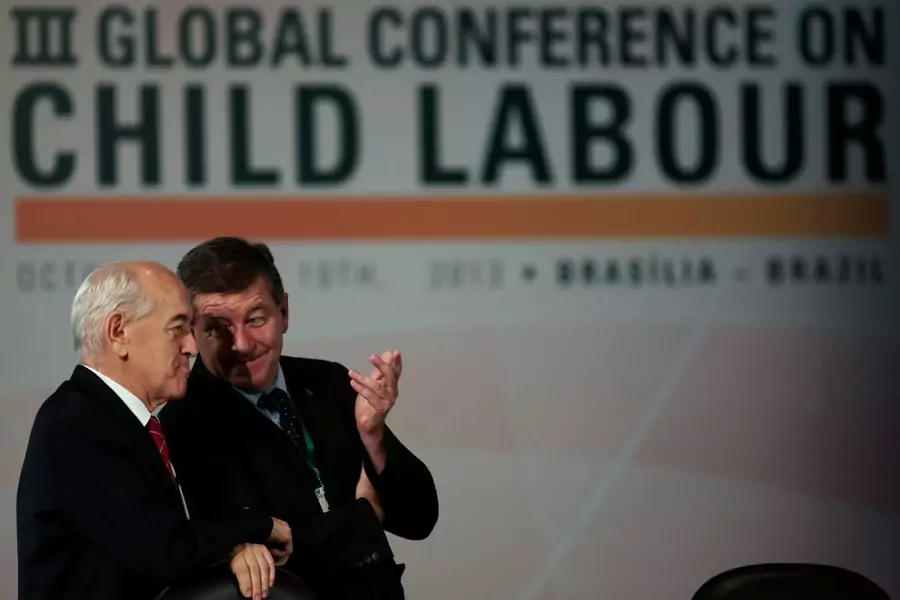Spotlight on Brazil: What Works to Address Modern Slavery

This post is part of the Council on Foreign Relations’ blog series on human trafficking, in which CFR fellows and other leading experts assess new approaches to improve U.S. and global efforts to curb trafficking and modern slavery. This post was authored by Nesrien Hamid, programme officer at United Nations University Centre for Policy Research.
How do you identify best practices to end modern slavery, human trafficking, forced labor, and child labor in the context of a particular country or industry? Delta 8.7—a global knowledge platform—hosts country policy research workshops focused on that question. In order to identify and scale up action, each Delta 8.7 workshop explores a particular country or a particular sector or issue within a country and brings together policymakers, researchers, and members of civil society to discuss “what works” to effectively address modern slavery in that specific context. The workshops are closed-door and conducted under the Chatham House Rule. The first Delta 8.7 workshop focused on Brazil.
Focus on Brazil
More on:
Brazil is a global standout in the fight against modern slavery. Since 1995, when the Brazilian government acknowledged the existence of the problem in the country and set up the institutional architecture and devoted resources to combat slave labor, more than 55,000 individuals have been removed from conditions analogous to slavery in Brazil. Brazil’s extraordinary achievements with addressing cases of slavery in the past twenty-five years were facilitated by innovative and effective initiatives that seek to root out the problem. An example is the renowned “dirty list”— a public register of entities found to employ slave labor in their supply chains—which has proven to be an effective naming and shaming tool to hold businesses responsible for the incidence of slavery in their supply chains. Brazil is also well ahead of other nations on providing publicly available data that illustrates the nature and extent of modern slavery. Such initiatives as the Labour Inspection Secretariat’s Radar and the Brazilian Digital Observatory of Slave Labor (SmartLab), for example, track the number of individuals rescued, their places of origin, and the sectors in which they were employed, among many other indicators. Brazil thus presents a rich and productive context for identifying the most effective measures to combat all forms of modern slavery.
The Delta 8.7 workshop on Brazil brought together an array of policymakers, including from the government’s Federal Labour Prosecution Office, the Public Prosecutor’s Office, and the Ministry of the Economy; from the International Labor Organization; and from civil society and research institutions, both from Brazil and elsewhere. Delta 8.7 worked with a local convening partner, Repórter Brasil, to conduct research and organize the sessions.
Recommendations
Experts identified recommendations to make progress on the following five priorities:
- Slave labor in supply chains
- Prevention and reinsertion
- Child labor
- Human trafficking and slave labor
- Data, research, and monitoring and evaluation
Implement robust prevention and support policies with survivor expertise
More on:
Involving survivors and vulnerable communities in research, policymaking, and program design and implementation is critical. Survivors and members of vulnerable communities are best able to identify their needs and often are in possession of creative solutions to reduce their vulnerability. Most importantly, survivor-centric policy and programming ensure that any anti-slavery agenda prioritizes prevention and survivor support rather than reacting after exploitation occurs (or reoccurs).
Harness research synergies to identify solutions
In order to more efficiently deploy scarce resources as well as to enhance prevention efforts, policymakers should better coordinate and leverage the lessons learned around distinct forms of modern slavery, such as efforts to combat child labor and the slave labor that affects adults. Effectively addressing child labor requires that families and communities are made resilient to extreme poverty and have access to adequate schooling. It is, therefore, not enough to focus programs on children without consideration of the wider context within which they live. Furthermore, combatting child labor in supply chains may be aided by incorporating tools that have proven effective in combating slave labor, namely the dirty list.
Fill the research gaps
Research gaps should be addressed in order to facilitate evidence-based policymaking. In Brazil, more research is needed to: assess the extent of the worst forms of child labor; examine the types of slave labor affecting women and girls; and track, through a systematized repository, criminal and labor justice data for all identified cases of slave labor.
The future of anti-slavery research
As the COVID-19 pandemic deepens vulnerabilities to modern slavery and decreases the available resources to address it, targeted research is needed to prioritize effective anti-trafficking investments. Delta 8.7 workshops provide this platform, from Brazil to Malaysia to India. Future Brazil-focused events might prioritize: identifying synergies between combating slavery and deforestation; incorporating gender considerations into extant anti-slavery policies; and implementing regulations of the informal market as part of post-COVID recovery.
A January 2021 workshop focused specifically on migrant workers in Malaysia. A March 2021 workshop focused on forced and child labor and human trafficking in the context of the textile and apparel industry in India, as the country finalizes its National Action Plan on Business and Human Rights. These workshops examine how local contexts interact with national and international policies, with the goal of prioritizing effective anti-trafficking solutions during a particularly challenging time for vulnerable communities.
The full Delta 8.7 workshop report on Brazil can be found here.
 Online Store
Online Store